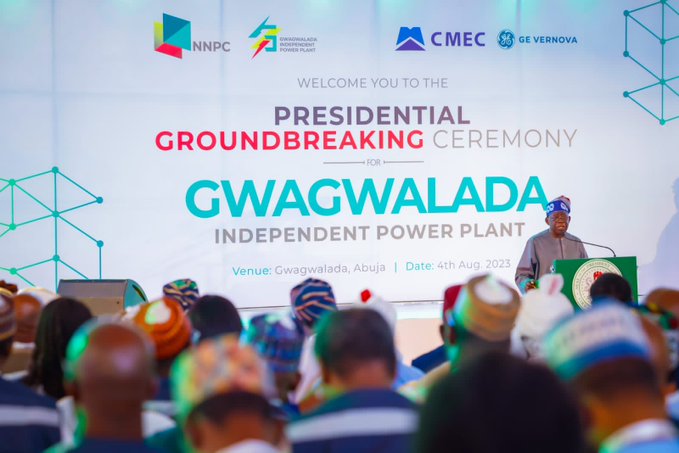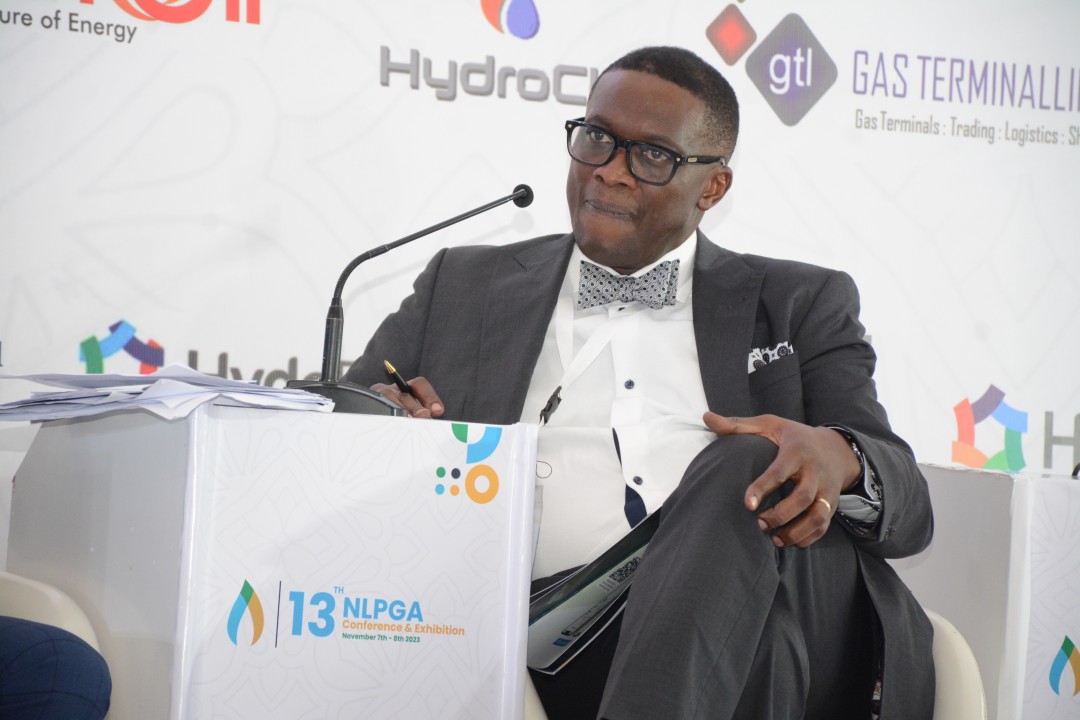President Bola Ahmed Tinubu.on Friday performed the groundbreaking of the Nigerian National Petroleum Company Limited (NNPCL) 1,350 MW Independent Power Project at Gwagwalada in the Federal Capital Territory.
NNPCL had previously announced the groundbreaking ceremony of the project which is in phases, with Friday’s inauguration being the first phase capacity of 350 MW.
Persecondnews reports that the NNPCL and the United States Trade and Development Agency (USTDA) signed a $1.1 million grant as part funding for the NNPC-Abuja Independent Power Project (IPP) modelled to generate 1,350 megawatts (MW) of electricity to alleviate the power challenge in the country.
The signing of the deal between the NNPCL, the USTDA and General Electric (GE) took place at the Nigeria International Petroleum Summit (NIPS) in Abuja in February, 2020.
The Group Managing Director of NNPCL, Mele Kyari, signed on behalf of the company while former United States Ambassador to Nigeria, Mary Beth Leonard, signed for the U.S. agency.
According to Kyari, the plan by the corporation to build the 1,350MW power plant in Abuja is part of the national strategy to monetise the abundant natural gas resources in the country.
Here are some things you should know about the 1,350 MW GIPP.
It is a combined cycle of three power train blocks of 4500 megawatts (MW) each, two gas turbines, two heat recovery and steam generators, one steam turbine.
Can generate 10.3m MW per hour of electricity.
The 1,350MW Independent Power Plant (IPP) would leverage on the existing huge natural gas resources from the NNPC Upstream and the Ajaokuta-Kaduna-Kano (AKK) gas pipeline, which is currently being developed.
It will also boost the nation’s revenue base and generate employment opportunities.
The project sits on a 54.7-hectare land in Dukpa, Gwagwalada Area Council of the Federal Capital Territory (FCT).
Apart from generating 1,350MW into the national grid, the project would help to decongest the over-voltage on transmission network coming from closely located power generating companies in the gas producing areas.
























Leave a comment